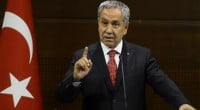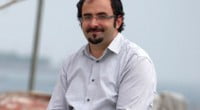Soul searching inside the Gülen movement

Date posted: May 9, 2014
AHU ÖZYURT
So, as the Supreme Election Board has officially announced, the ruling Justice and Development Party’s (AK Party) vote in the election was officially between 43-45 percent. Sources in Ankara and pollsters tell me that inside this number there is still a 5-8 percent Gülenist vote. Now, after all the “cleaning up” inside the state bureaucracy, one can hardly say that the Gülen faithful can still vote for Erdoğan.
Academics and former politicians inside the movement quietly tell stories of some of their brethren being seduced by promises of high level appointments and huge sums of money to defect to the AK Party lines before the elections. None of these can be confirmed of course, but these are signs of internal debate inside the movement.
A high level official in the U.S. Department of State recently told me that Washington was very disturbed by Prime Minister Erdoğan’s allegations against the U.S. supposedly being behind all political opposition to him, be it the Gezi Park protests or the Gülen movement’s statements. My source openly asked whether the prime minister really did not predict the reaction after the Twitter and YouTube bans. “For us, this is a simple freedom of expression issue,” my source said. The U.S. is also treading very carefully on the Gülen issue. The movement has been Turkey’s top lobbyist on Capitol Hill for a decade. On topics ranging from the Armenian statements to northern Iraq, Ankara has openly supported think tanks close to Gülen to lobby and be the face of Turkey. This was a deliberate choice by AK Party officials and the prime minister himself, as he carried a deep mistrust toward the Foreign Ministry’s established diplomats. So Ankara’s push to discredit the movement in Washington seems to have backfired and created more confusion, especially on Capitol Hill.
So now, what’s next for the movement? Until the presidential elections in August, the Gülen movement seems to be focusing on its core competencies, schools all over the world and broadening the discussion on dialogue. One young and bright scholar from Fatih University, close to the Gülen movement, right after the election told me, “The Gülen movement has made some mistakes as well, but you will probably see more interaction and dialogue with different secular circles, especially the Alevis.”
One big, bold and almost impossible step could be taken toward the Balyoz (Sledgehammer) and Ergenekon trials. The death of Colonel Murat Özenalp in prison has probably set alarm bells ringing among the conscientious members and sympathizers of the Gülen movement. The families of jailed soldiers and civilians openly blame the judicial establishment and pro-Gülen prosecutors regarding the due process. But after all the reshuffling and bulldozing, the AK Party and Erdoğan do not seem to be eager to change anything about these highly charged cases.
The ball is in the Gülenists’ court now. Can prominent members of the Gülen movement be bold enough to take up this challenge and discuss the mistakes in these trials? Can the Gülen movement live up to its principles of dialogue? Would a political and social movement of three decades perform self-criticism and dare do make peace with the most secular establishments of this country or live under the heavy burden of the “kumpas?” Let us hope they would at least try.
Source: Hurriyet Daily , May 9, 2014
Tags: Defamation of Hizmet | Democracy | Hizmet (Gulen) movement | USA |
























